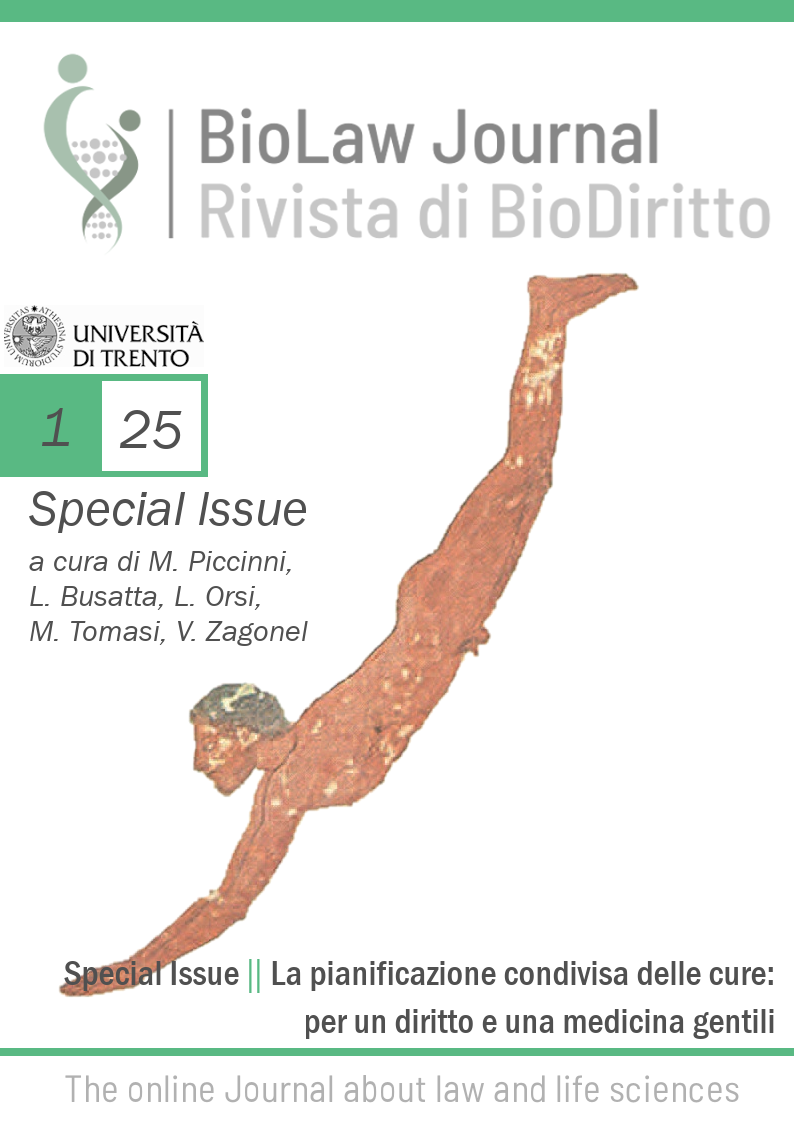Shared care planning for adults who are wholly or partially lacking in autonomy
DOI:
https://doi.org/10.15168/2284-4503-3411Keywords:
Advance care planning, shared care planning, capacity, lack of autonomy, enhancement of patients’ residual capacity, patient’s best interestAbstract
Shared care planning poses several interpretative and implementation problems when the patient lacks, in whole or in part, the capacity to make informed decisions about their health. This essay aims to investigate whether, and under what conditions, access to shared care planning is allowed for non-autonomous individuals. A superficial reading of the law might lead one to believe that only adult and legally competent persons can undertake care planning. On the contrary, the general structure and spirit of Law No. 219 leads to interpreting the rules on capacity in the sense that even patients who are wholly or partially lacking in autonomy can be protagonists in planning, with the support of those who have decision-making powers over their health.
Downloads
Published
How to Cite
Issue
Section
License

This work is licensed under a Creative Commons Attribution-NonCommercial-NoDerivatives 4.0 International License.





